This strong and hardy plant makes a great office companion or house plant.
The vibrant green leaves add color to any room and its leaves are a must-see to believe.
Monstera Adansonii Care & Growing Guide
1. Light requirements
The Monstera plant likes to be around bright but indirect light. If it’s beneath direct light for too long, the leaves will end up burning and turning brown. It also does well in a low amount of indirect light, but it will not grow as fast as it would if there was more indirect light. However, you can take this plant out into direct sunlight if the sun is not so intense, like in the early morning after dawn or an hour before sunset.
2. Water
Never re-water this plant when it’s soil is very moist. Wait until the soil is damp but not dry to begin watering it again. If you overwater your plants and don’t have a pot that drains out the excess water quickly, you could end up giving your plant root rot. This disease can completely kill it.
3. Climate
The ideal climate for the Monstera Adansonii is warm and slightly humid. It should not be too humid since the soil needs to dry out a bit before it can be watered again.
4. Soil
If the Monstera is in your home as a potted plant, then basic potting soil with a bit of peat moss should work just fine. If you placed your plant outside, then make sure you have soil that drains well. Mix some potting soil with some outside dirt to give the outside plants a small boost of fertilizer and peat moss. 5.5 to 7.5 is the best level of ph for the Monstera to grow.
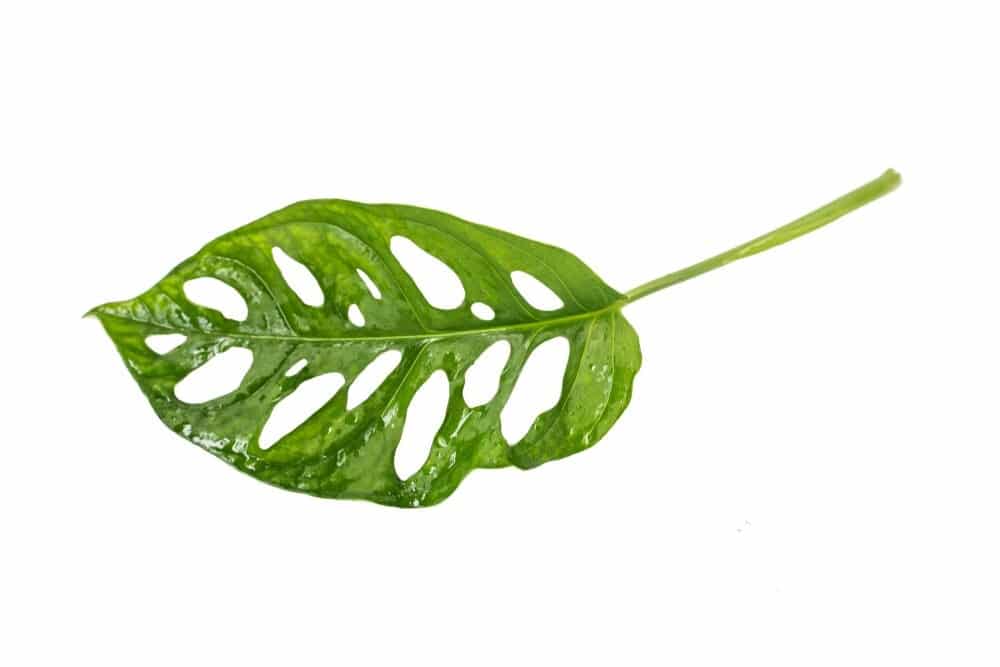
5. Temperature
The Monstera plant comes from around central America, so it does best in a warm temperature. Keep your home from anywhere between 55F to 85 degrees to keep this plant comfy and keep it growing. If the temperature drops down below 55F, the leaves of the plant will curl and die off. Any prolonged exposure to the cold is harmful to the plant.
6. Repotting
When you repot a monstera plant, you should take it out of its pot gently, as not to disturb the roots. You have to repot the plant if roots are too big for the pot now. Just set it aside, mix some of the old soil from the original pot with new soil in the new pot, and place it in the plant. We add old soil to new soil, so the plant doesn’t experience shock.
7. Speed of Growth
The growth rate of the Monstera is prolonged, less than 1 foot a year. You can increase it’s rate of growth by keeping its ideal conditions for long periods of time. So, the Monstera will grow up to two feet. You can see that you have new growth if you look at the plant’s leaves. If there are no holes in the leaf, then it is a new leaf.
8. Height and spread
Surprisingly, with the right pruning and trimming, you can have the monstera plants that fit right on a desk. Usually, when they are allowed to grow without trimming or are affected by the disease, they can reach up to 13 feet. Its leaves are large, and they fan out all around the plant, so it’s spread can easily be 2-3 feet across. The leaves alone can grow up to 20 inches, so trimming is a must if you want to keep it small. These measurements are for outside plants. If the Monstera is indoors, then it can grow up to 3-5 feet and about 20 inches across.
9. Flowers
You have to wait until the plant is about seven years old to finally see a flower. They look like long tubes, and they don’t really bloom. Seeing this flower is very rare and doesn’t happen to every owner who has their plant.
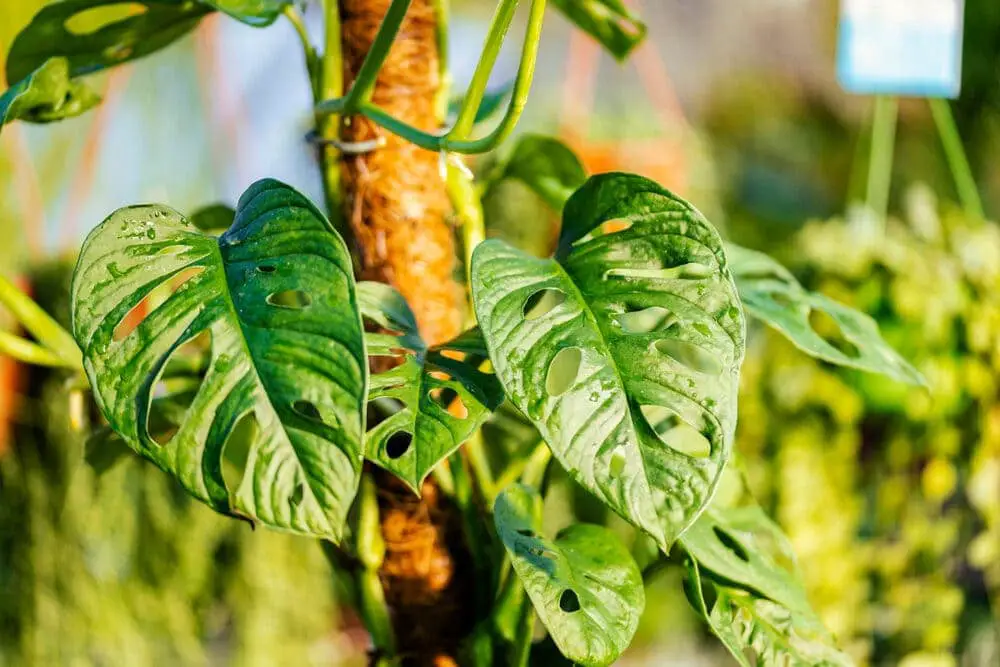
10. Trimming
If you want to keep the monstera plant from growing too tall or too wild, then you need to cut off the top growth and remove any dead leaves and stems. To prevent your plant from growing too fast, keep it indoors and away from bright open windows that allow in lots of indirect light.
Is the Monstera adansonii plant poisonous?
If you have a house pet, you may want to think twice before getting a monstera plant. This plant is harmful to animals. If your pet accidentally bites or eats this plant, they will experience internal burning sensations, vomiting, and extreme swelling. You will have to take your furry friend to the vet to have them checked out.
Can Monstera adansonii plants grow in water
No, the Monstera plant hates to be over watered and would not even grow in its plant beneath the water. It needs to have slightly damp soil in order to grow and establish a robust network of roots. If it is grown in water, it won’t be able to do any of that, and it’ll die.
How to get Monstera adansonii plants to flower?
You can’t really. It takes several years for the plant to reach a maturity level to be able to even produce a flower. Once it is old enough, there is no guarantee that the flower will actually come out and bloom.
Common Monstera adansonii Plant Diseases
Spider Mites
Because of its clean surface and many holes to weave the website into, spider mites love to live around Monstera plants. If you want to remove the spider mites, I’m afraid you’ll have to cut off the part they destroyed and eat. After that, you can rinse off the leaves and stem periodically.
Similar post: Why Is My Monstera Droopy? And How To Fix It!
Root Rot
This disease comes from overwatering your plants too much and not having a large enough opening to drain out quickly. If your plant develops root rot, you have a major issue, and you’ll have to throw away your plant.
Also read:
Conclusion
- The Monstera Adansonii plant has a nickname. It’s “The swiss cheese plant,” and it’s called that because of all the hole in its leaves.
- This plant is very popular in Central America and with the countries at the top of the South American continent.
- Exposing this plant to the cold will quickly kill it
- This plant is poisonous to animals.
- With careful trimming, the Monstera plant can grow as wide or tall or short and narrow as you need it too.
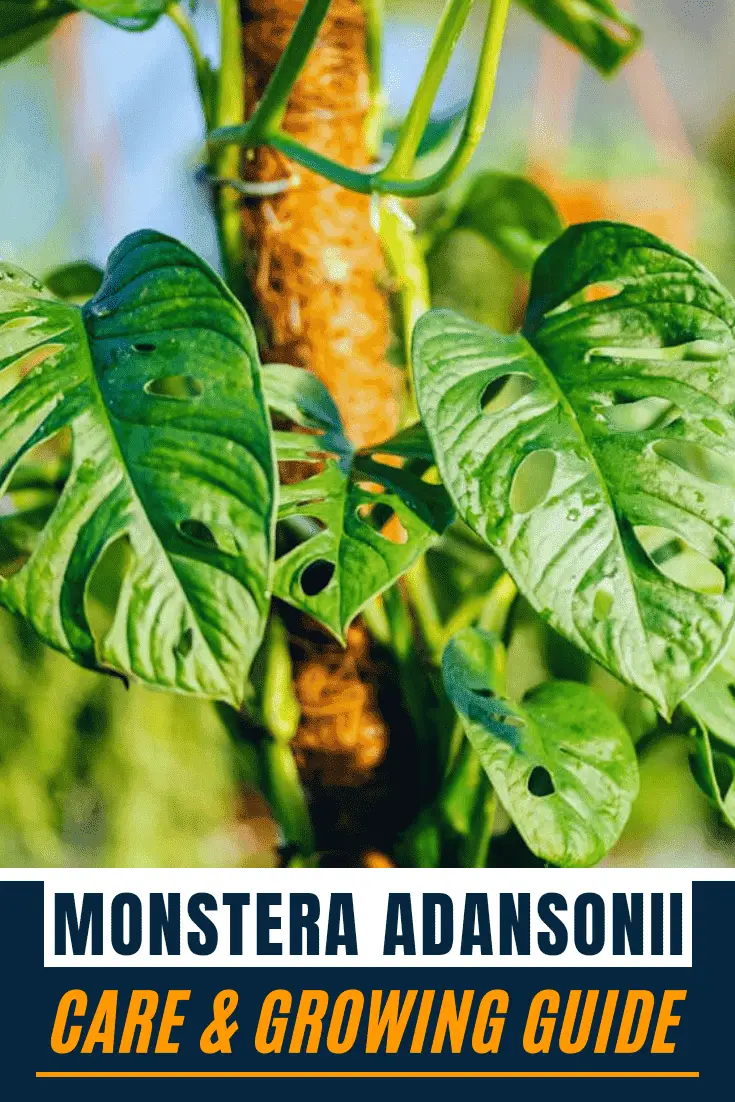
Victoria is the owner and main author of hobby plants. She loves spending her free time in her garden planting and taking care of her plants. Victoria hopes you enjoy the content here!
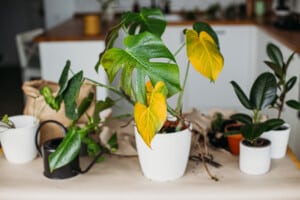





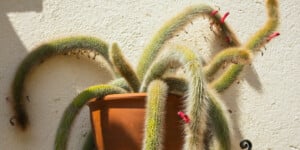
![Mother Of Thousands Plant [Complete Plant Care Guide] Mother Of Thousands Plant [Complete Plant Care Guide]](https://www.hobbyplants.com/wp-content/uploads/2022/07/mother-of-thousands-plant-300x158.jpg)
![How Often Should You Water Pothos? [Complete Care Guide] How Often Should You Water Pothos? [Complete Care Guide]](https://www.hobbyplants.com/wp-content/uploads/2022/07/how-often-to-water-pothos-300x158.jpg)
![Can Snake Plants Live Outside? [COMPLETE CARE GUIDE] Can Snake Plants Live Outside? [COMPLETE CARE GUIDE]](https://www.hobbyplants.com/wp-content/uploads/2022/08/can-snake-plants-live-outside-300x158.jpg)
![Majesty Palm Plant Care: [Complete Beginner's Guide] Majesty Palm Plant Care: [Complete Beginner's Guide]](https://www.hobbyplants.com/wp-content/uploads/2022/08/majesty-palm-care-300x158.jpg)
![Exotic Angel Plant Care: [Complete Beginner's Guide] Exotic Angel Plant Care: [Complete Beginner's Guide]](https://www.hobbyplants.com/wp-content/uploads/2022/08/exotic-angel-plant-care-300x158.jpg)
